Water heater leaks are common due to corrosion, aging parts, improper installation, or settings. They cause water waste, increased bills, damage, and safety hazards. Regular inspection for moisture, rust, unusual noises, and temperature fluctuations is crucial. DIY maintenance includes checking connections, flushing the heater, and monitoring pressure. Complex issues require professional expertise for accurate diagnosis and durable repairs. Prompt action involves turning off power/gas, isolating leaks, replacing parts or heaters, and regular post-repair inspections to extend lifespan and ensure safe hot water supply.
“Uncover the secrets of water heater leak detection and be prepared to face potential issues head-on. This comprehensive guide explores the intricate world of water heating systems, delving into the common causes of leaks and their significant impact. Learn to recognize subtle signs of distress in your water heater, implement preventive maintenance tips, and make informed decisions regarding DIY repairs or professional assistance. From identifying the source of a leak to post-repair care, this article equips you with the knowledge for efficient water heater repair and enhanced system longevity.”
Understanding Water Heater Leaks: Common Causes and Impact
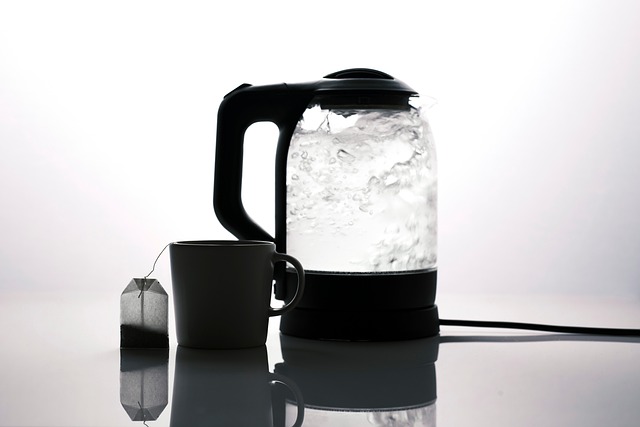
Water heater leaks can be a common household issue, often stemming from various factors. One of the primary causes is corrosion or damage to the tank’s interior due to sediment buildup and mineral deposits over time. This can lead to tiny cracks or holes, resulting in gradual water loss. Another frequent culprit is aging components, such as O-rings or gaskets, which weaken and lose their sealing ability, permitting leaks at connections and joints. Additionally, improper installation or inaccurate temperature settings can contribute to excessive pressure buildup, causing potential leak points.
The impact of these leaks extends beyond mere water waste. Left unattended, they can lead to significant water damage and increased energy bills. Leaking heaters may also pose a safety risk by creating slippery surfaces and, in severe cases, increasing the risk of electrical shocks if the leakage affects the heater’s wiring. Prompt identification is crucial for effective Water Heater Repair, ensuring the issue is addressed before causing further complications or unnecessary expenses.
Early Detection: Recognizing Signs of a Leaking Water Heater
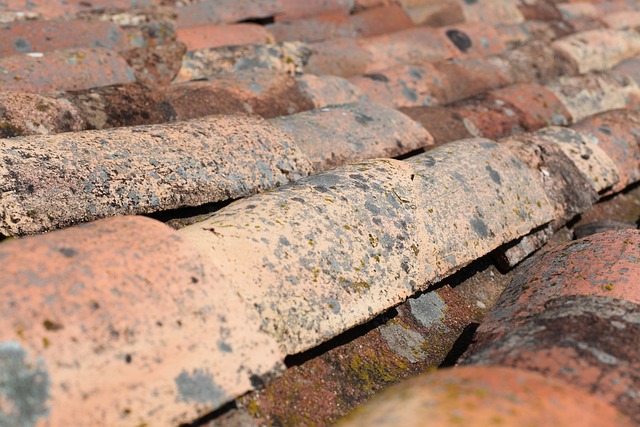
Early detection is key when it comes to addressing a leaking water heater. By being vigilant, you can prevent significant damage and costly repairs. Regularly inspect your water heater for any signs of moisture or water pooling around its base. This could indicate a leak at the base or tank connections. Over time, rust accumulation on the exterior of the heater is another clear sign that warrants immediate attention.
Moreover, pay close attention to unusual noises coming from the water heater, such as banging or bubbling sounds. These may suggest internal leaks or sediment buildup. Additionally, check for temperature fluctuations in your hot water supply, which could point to a malfunctioning heating element or insulation issues caused by leaks. Promptly addressing these signs can help with effective water heater repair and ensure the longevity of your appliance.
Maintenance Tips to Prevent Water Heater Leaks
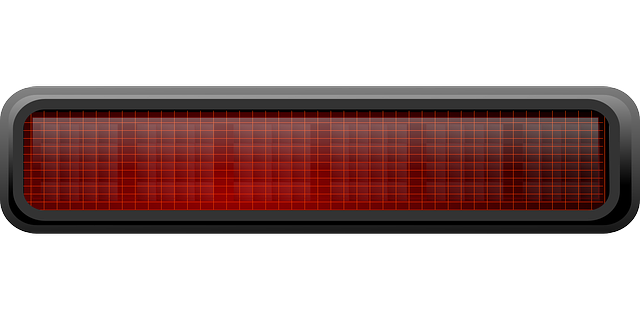
Regular maintenance plays a pivotal role in preventing water heater leaks, ensuring your system operates efficiently and safely. Firstly, inspect your water heater regularly for any signs of damage or corrosion. Check the pipes and connections for leaks, and ensure they’re securely fastened. A loose connection is often the culprit behind minor drips that can escalate into significant leaks over time.
Secondly, keep an eye on your water pressure. Excessive pressure can lead to tank strain and potential failure. Most water heaters come with a pressure relief valve; check its settings and clean or replace it as needed. Additionally, flush your heater periodically to remove sediment buildup, which not only improves efficiency but also protects against leaks caused by internal damage. Remember, prompt water heater repair for any detected issues can save you from costly damages and ensure a continuous hot water supply.
DIY vs Professional Repair: When to Seek Expert Help

Water heater leak detection is a crucial aspect of water heater repair, and deciding between DIY and professional services can be challenging. Many homeowners opt to tackle minor issues themselves, especially if they want to save on costs. However, when it comes to water heater repairs, seeking expert help might be more beneficial than initially thought.
While DIY methods can provide temporary solutions, complex leaks often require specialized knowledge and tools. Professionals are equipped with advanced detection techniques and have the expertise to pinpoint the exact source of the leak. They also have access to high-quality replacement parts, ensuring a more durable fix. If you notice persistent or significant leaks, corrosion, or unusual noises, it’s advisable to contact a professional water heater repair service to avoid further damage and ensure the safety of your home.
Diagnosing the Leak: Tools and Techniques for Accurate Identification
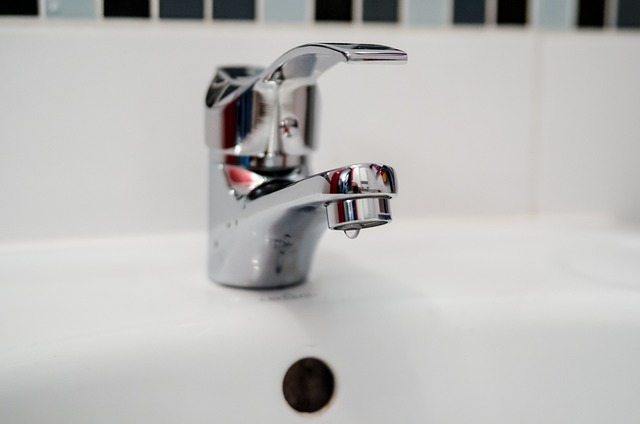
When it comes to diagnosing a water heater leak, having the right tools and techniques is paramount for accurate identification. Start by visually inspecting the heater for any signs of damage, corrosion, or moisture accumulation. Check all connections, including pipes, valves, and fittings, as these are common sources of leaks. A torch can help reveal hidden corrosion or damage that might be missed at first glance.
For more precise detection, use a pressure gauge to monitor the water pressure before and after turning off the heater’s supply valve. A sudden drop in pressure could indicate a leak. Additionally, listen for dripping sounds or unusual noises coming from the heater, as these can provide valuable clues about the location and nature of the leak. Don’t forget to consult a professional water heater repair service if you’re unable to pinpoint the issue, as they have specialized equipment and expertise to handle complex cases.
Water Heater Repair Steps: A Comprehensive Guide
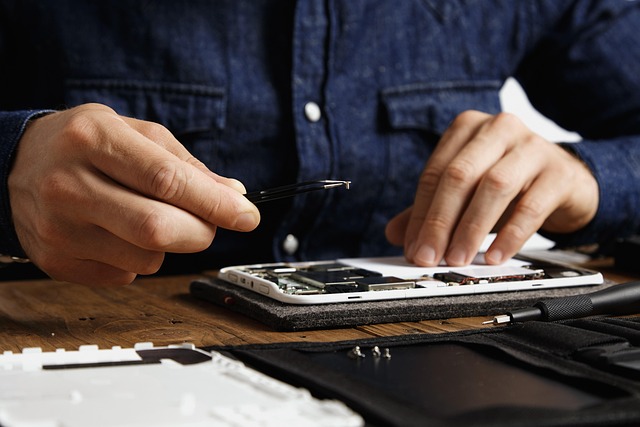
If you suspect a leak in your water heater, it’s crucial to act swiftly for effective water heater repair. Here’s a comprehensive guide to help you navigate the process. First, turn off the gas or electricity supplying the heater. This prevents any potential hazards and ensures safe handling during repairs. Next, locate the leak by observing any wet spots around the base of the unit or listening for unusual sounds emanating from it. Once identified, take measures to isolate the source: check connections, replace worn-out parts, or tighten fittings. If the issue persists, consider more extensive repairs such as replacing the entire water heater. Regular maintenance and timely action can significantly extend the life of your appliance and prevent costly damage.
Ensuring Safety and Longevity: Post-Repair Care and Maintenance
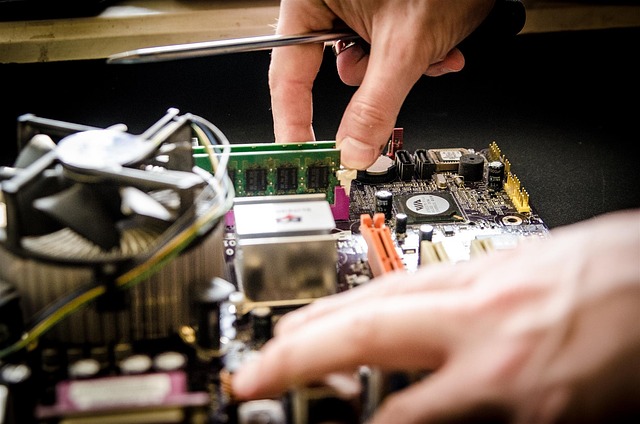
After a successful water heater repair, it’s crucial to implement proper post-repair care and maintenance practices for both safety and longevity. Start by allowing the system to cool down before conducting any inspection or maintenance work. This prevents accidental burns and ensures your safety. Next, check for any persistent leaks around the repair sites; even minor drips can lead to significant water waste and potential damage over time.
Regular maintenance is key to keeping your water heater in top condition. Set a schedule for periodic inspections, focusing on the repair area and other critical components like the dip tube, heating elements, and pressure relief valve. Keep an eye out for signs of corrosion, rust, or unusual noises, as these could indicate potential issues. By prioritizing post-repair care, you can extend the life of your water heater and avoid costly replacements in the future, while also ensuring a continuous supply of hot water for your household needs.
